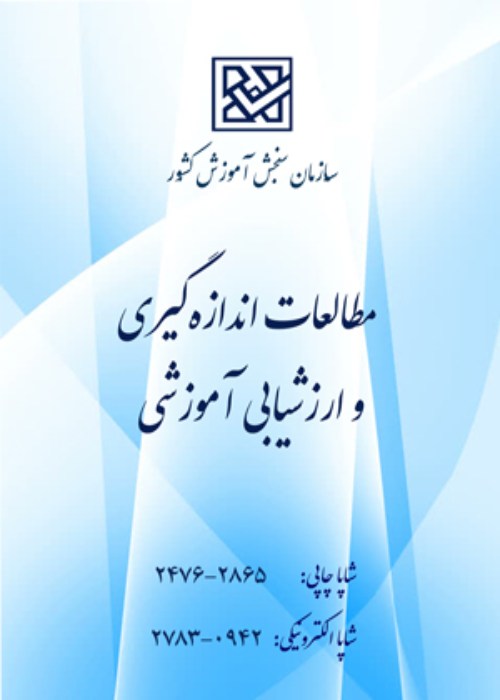The Current state of Evaluation of Primary Education Curriculums
Curriculum evaluation is one of the important components in curriculum design and implementation, programs that are properly evaluated will be more successful in achieving their goals. The purpose of the current research is to investigate the current situation of evaluation of elementary school curricula.
This research was conducted with a qualitative approach and a data-based method. The statistical population includes all agents involved in the curriculum of the elementary school, who were selected through purposeful criterion-based sampling. The data were collected through semi-structured interviews with ten teachers, seven heads of educational groups of primary education, six principals of primary schools, and eight professors of Farhangian University in the field of educational sciences - mass curriculum planning. was brought In order to analyze the data, open, axial and selective coding method was used. Lincoln and Cuban criteria were used to ensure validity and reliability.
The results of the research show twenty-one core concepts and nine selected categories, which, in the form of a paradigmatic model, include unbalanced evaluation of curricula as a core category and causal conditions (including axes such as: lack of literacy in the evaluation design of curriculum planners, reductionism in evaluation, weak assessment and evaluation literacy of the implementers and quantification in evaluation), contextual factors (including axes such as; organizational, school and class), strategic factors (including axes such as changing the approach of program evaluation curriculum, core expertise in the implementation of evaluation and networking in the field of curriculum evaluation design (facilitating intervention conditions) including such areas as professional development of teachers, strengthening the critical view of the curriculum and support organizational), restrictive intervening conditions (including axes such as individual, executive and cultural-structural barriers) and strategies and consequences (reduction in the effectiveness and efficiency of the curriculum) of the organization.
According to the results, it can be concluded that the evaluation status of the curricula in the primary period in the three levels of the intended, implemented and acquired curricula is not favorable and the need to pay attention to the improvement of the assessment and evaluation literacy of the teachers and the program. Curriculum is necessary in this field.
- حق عضویت دریافتی صرف حمایت از نشریات عضو و نگهداری، تکمیل و توسعه مگیران میشود.
- پرداخت حق اشتراک و دانلود مقالات اجازه بازنشر آن در سایر رسانههای چاپی و دیجیتال را به کاربر نمیدهد.



